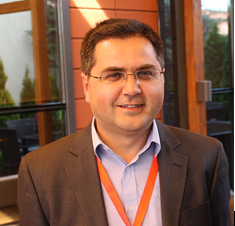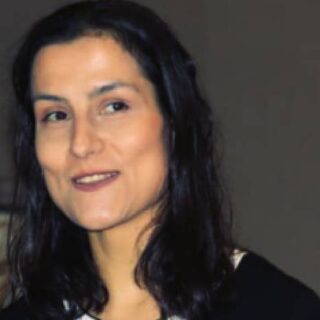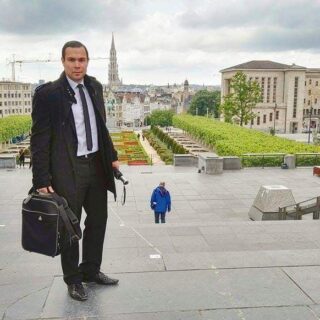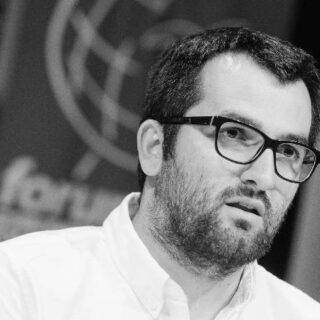There is a constant, unspoken but implied designation of history both as a science and as teaching subject that it should be subjected to a constant review. This designation turned postulate is taken for granted both by the genuine scientists and researchers, and by the teachers, as well as by the democratic societies and states in general. The impulse for such review stems from the conduct of constant research and the need to “learn from the history” (Historia magistra vitae est).
Teaching history at different periods of time and systems had different intentions. The subject of history and the teaching of history has been used as a means of indoctrination and often, as instrumentalization of youth and the society in general. What should be the real role of teaching the subject of history today, in a democratic country?
In Europe, the review of history teaching has a long history behind. This process started right after the end of World War One and continues to this day.
Institutions, institutes, and various organizations, such as the Council of Europe, proclaim and refer to multi-perspectivity as the most suitable approach to teaching history. Eschewing the mono-perspective description of events, and taking into consideration various perspectives, enables students to keep in mind various viewpoints when tackling a specific historical event. Such approach, which at the same time is a methodology too, creates for the youth an opportunity to cultivate skills for research, analysis, and critical thinking, as required skills to face the requirements of a democratic and contemporary society. Thus, the goal and role of teaching history now has taken on a different dimension. Apart from the subject history, the aim is to develop among youth their independent thinking as the best route to know and understand the world, the development of events, processes, the role of personalities, and to take the right decisions in their daily lives and be responsible and informed citizens. Only in this way the subject of history can serve the wellbeing, understanding, and tolerance as necessary values for a democratic society.
How does the history teaching in Kosovo nowadays look like? Since 2000, Kosovo has begun a process of overall reforms in education. The subject of history has been subjected to such changes. There have been attempts to redefine the role and goal of the subject of history by reviewing the curricula content. Apart from topics on the wars, which traditionally have been the axis of program content, other dimensions have been included, from the aspect of social development, technical-technological development, economy, daily life of people, inheritance, the role of women, and other topics that previously were either dealt with a little or not at all, e.g., the Holocaust. A pronounced attention has been paid to the methodology. The methodology guides for various grades, usually part of the curricula for this subject, have been enriched with suggestions on how to use the contemporary methods and approaches to teaching.
It is understood that there is always room for improvement and review of the curricula. This should be deemed as a continuous process. There are always voices that are not happy with the changes made. Some do not approve of the changes, while some others are not satisfied with the volume and quality of changes. There are those who consider the introduction of new topics as a challenge for the teachers. However, the curricula should be the best reflection of the goals, needs, and interests of a society.
To achieve the goals and changes envisaged by the new curricula, the most important link in the chain, are, undoubtedly, the teachers. The opportunity that youth learn about the past in an impartial, critical, and multi-perspective way depends directly on what is offered to them and how it is taught at schools.
You may have good curricula, good textbooks but unless the teachers are adequately prepared, everything could be in vain. It is considered that the change of mindset and people’s habits is the most difficult to achieve. They are linked with the stratification of knowledge acquired over time, circumstances, and situations an individual goes through and with his emotional side. Discrimination, painful war experiences, continuous political and economic crisis for sure influence on the worldview of the Kosovo teachers.
One of the key challenges in changing the approach to history teaching is specifically the development of the potential of teachers. This challenge, both difficult and meaningful has direct effects on the mindset of the coming generations, on interhuman, ethnic, cultural, religious, and social relations in the society.
In Kosovo, there have been continued efforts to raise the professional capacities of teachers. With the support of local and international organizations various training programs for teachers of history have been organized, and various teaching materials have been prepared to serve teachers to tack and deal with innovation, topics, or issues they did not deal with before. The Association of Kosovo History Teachers has played an important role. Albeit a new and inexperienced entity, the Association has made positive steps. One of its most fruitful collaborations in the recent years is the one with ForumZFD in the area of Holocaust education. This topic, relatively new, is a novelty and challenge for the teachers in Kosovo.
As a result of this collaboration, the Association of Kosovo History Teachers together with ForumZFD, the non-governmental organization New Perspektiva, and representatives of the Ministry of Education and other partners, worked on preparing a manual on Holocaust education. This manual is the first of its kind in Kosovo. It is a result of a series of meetings, seminars, training programs, and the visit of a group of teachers from Kosovo to the World Holocaust Memorial Center Yad Vashem in Jerusalem, Israel, with the support of ForumZFD.
The manual is based on the requirements of the new curricula and refers to learning results expected to be achieved by students of grades IX, XI, and XII. The material is drafted in such manner as to link narrative sections, historical sources, and activities that teachers and students can do. Attention has been paid to selection of sources from various viewpoints – multi-perspectivity. The manual seeks to reflect the perspectives of different communities living in Kosovo on the specific topic that is elaborated.
The topic of Holocaust, as a very important part of the curricula and this manual enable students to better understand how this calamity happened, and to draw the necessary universal lessons for the future.
Dealing with the past is one of the challenges in the region of the Balkans, which is slowly leaving behind a dark period in its history. Education on the Holocaust can serve as an important reference how we should deal with the past and engage for peace. It is known that the foundations and importance of the history subject lie in the fact that by learning about the past we prepare to build the future.
By compiling and providing this manual an attempt was made to open one more window in the noble route of educating the new generations, free from hatred and discrimination towards the different others. This is one more opportunity to review the viewpoints of the historical past, and to build a democratic society where diversity, understanding, and collaboration are core values.
Both from its content and organization, and the aspect of methodology, this manual can serve as a good model for the multi-perspective approach to teaching about historical events. It enables teachers to use new interactive methodologies of teaching, and the students to conduct independent research and comparisons.
Also, this manual can serve as a model for reviewing, conceptualizing, and compiling new textbooks and other teaching materials in Kosovo. This is a requirement and challenge related to the implementation of the new curriculum.
Collaboration between different partners, as in this case, can bring useful benefits to the process of reviewing and improving the teaching of history in Kosovo and beyond.
Arbër Salihu is a graduate of history at the University of Prishtina. He finished his master studies at the same university. Currently, he is working on his PhD dissertation in the field of Contemporary History of Kosovo. Between 1997 and 2000 he worked as a history teacher. Since 2000 he is a curriculum developer at the Ministry of Education Science and Technology of Kosovo. He is an expert in history and history education and a textbook author. Among other activities, Arbër delivers workshops, lecturers, and training of teachers. He has participated in many workshops, seminars, conferences, and other activities in Kosovo and abroad. He is one of the cofounders of the Association of Kosovo History Teachers.




